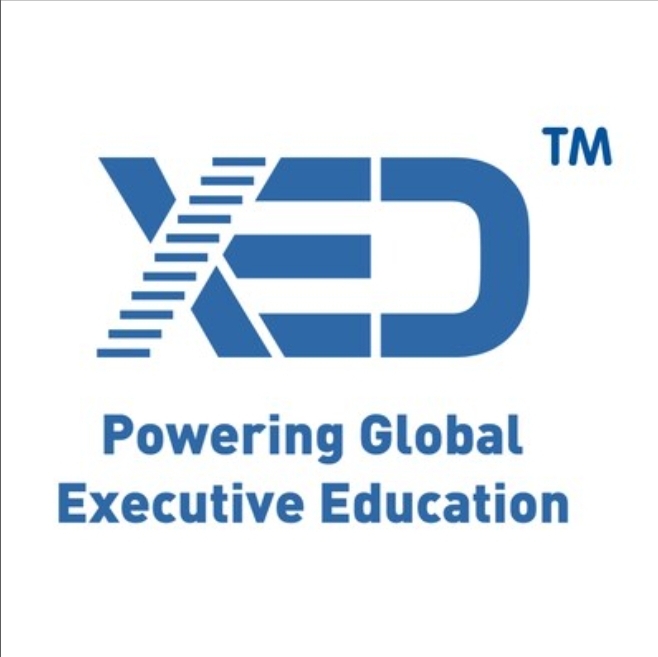The Strategic Convergence: University of Virginia Darden and XED Reshape C-Suite Leadership Through Customer-Centric Excellence
Executive Leadership Revolution in Motion
Today’s business environment demands more than traditional leadership skills. Furthermore, the announcement of the Darden CEO Leadership Program represents a transformative shift toward customer-centric executive development. Moreover, this collaboration between the University of Virginia Darden School of Business and XED signals a critical evolution in preparing C-suite leaders for volatile market conditions.
Academic Excellence Meets Global Execution
The partnership brings together Darden’s renowned academic rigor with XED’s proven global reach. Additionally, Darden consistently ranks among the world’s top business schools. In fact, Princeton Review ranked Darden No. 1 for Best Professors and Best MBA for Management in 2025. Subsequently, this academic excellence provides the foundation for transformative learning experiences.
Meanwhile, XED has established itself as a global executive education powerhouse. Consequently, the company serves over 20,000 CXOs and senior leaders across 25+ countries. Furthermore, XED partners with more than 20 world-renowned academic institutions including Cornell University, University of Oxford, and Carnegie Mellon University. Therefore, this extensive network ensures comprehensive global perspective.
The Customer Experience Imperative
Modern executive leadership increasingly centers on customer experience strategy. Research indicates that 58% of customers will pay more for better experiences. Additionally, companies leading in CX grow revenue up to 80% faster than competitors. Therefore, customer-centric leadership becomes a critical competitive advantage.
John Kallelil, Founder & CEO of XED, emphasizes this strategic focus. Specifically, he states: “The Darden CEO Leadership Program reflects our shared commitment to building resilient, future-ready leaders”. Moreover, his background demonstrates deep expertise in executive education. Previously, Kallelil earned an MBA from Indian School of Business, Hyderabad. Subsequently, he founded XED in 2015 after recognizing gaps in executive skills development.
Boardroom Leadership and Governance Excellence
The program’s focus on boardroom leadership addresses critical C-suite challenges. Currently, executives face unprecedented volatility, uncertainty, complexity, and ambiguity (VUCA). Therefore, adaptive leadership skills become essential for organizational success.
Devin Bigoness, Chief Client Officer at Darden School of Business, brings extensive experience to this initiative. Previously, he worked 19 years in custom program development at Duke Corporate Education and Cornell University. Currently, his role focuses on designing educational solutions for global organizations including U.S. Navy, Edward Jones, and Capital One. Consequently, this experience ensures practical relevance for participating executives.
Market Dynamics Driving Executive Education Growth
The executive education market demonstrates remarkable expansion potential. Specifically, the market is projected to grow from USD 9.8 billion in 2025 to USD 28.3 billion by 2035. Moreover, this represents a CAGR of 11.2%. Therefore, demand for high-quality executive programs continues accelerating.
Several factors drive this growth trajectory. First, leadership-focused programs account for approximately 6.2% of the corporate training industry. Second, hybrid formats now represent over 40% of program delivery. Third, face-to-face formats have rebounded to over 60% by 2024. Consequently, blended learning approaches gain prominence.
Innovation Through Case Method Excellence
Darden’s signature case method provides distinctive competitive advantages. Specifically, approximately 75% of Darden’s MBA curriculum utilizes case-based learning. Moreover, this approach develops critical thinking and decision-making capabilities. Furthermore, students engage in 85% of classroom discussions during case sessions. Therefore, active learning becomes fundamental to skill development.
The case method proves particularly effective for executive education. Subsequently, participants analyze real-world business challenges from actual leadership perspectives. Additionally, this approach encourages collaborative problem-solving and strategic thinking. Moreover, faculty facilitate rather than lecture, promoting deeper engagement. Consequently, executives develop practical skills immediately applicable to their organizations.
Customer Experience Leadership Framework
Modern C-suite executives must understand customer experience governance structures. Specifically, effective CX programs require clear vision, strategic alignment, and cross-functional collaboration. Moreover, 42% of CX leaders still struggle with company culture alignment. Therefore, executive education must address these cultural transformation challenges.
The program’s emphasis on customer-centric leadership aligns with emerging market demands. Research shows that 90% of organizations have deployed or plan to deploy AI within contact centers. Additionally, 63% of CX leaders prioritize improving agent problem-solving abilities. Consequently, executives need comprehensive understanding of technology-enabled customer experiences.
Global Reach and Cultural Intelligence
XED’s international presence spans India, Africa, Europe, GCC, Far East, and USA. Moreover, the company delivers programs through in-person, hybrid, and application-based modules. Furthermore, this global footprint ensures cultural sensitivity and regional market understanding. Therefore, participating executives gain international perspective essential for modern business leadership.
The collaboration targets participants from North America, Middle East, South Asia, and beyond. Additionally, this geographic diversity promotes peer learning at the highest levels. Subsequently, executives build international networks while developing strategic capabilities. Moreover, cross-cultural exchange enhances problem-solving approaches and innovation potential.
Strategic Timing and Market Positioning
The program launch timing reflects critical market opportunities. Currently, 64% of organizations increase focus on ROI and financial metrics due to economic conditions. Moreover, executives face heightened scrutiny regarding strategic decision-making. Therefore, comprehensive leadership development becomes increasingly valuable.
XED’s recent IPO filing at GIFT City demonstrates commitment to global expansion. Specifically, this positions the company as the first Indian executive education firm pursuing international public listing. Moreover, this strategic move enables access to global capital markets and expanded partnership opportunities. Consequently, the Darden collaboration benefits from enhanced financial backing and strategic flexibility.
Transformational Learning Outcomes
The program design emphasizes transformational rather than transactional learning experiences. Specifically, participants develop skills in strategy, governance, innovation, and boardroom leadership. Moreover, these capabilities directly address VUCA world challenges. Furthermore, the curriculum combines academic rigor with practical application. Therefore, executives return to organizations with immediately implementable strategies.
Research indicates that companies with agile leadership teams outperform competitors by 25% during uncertain times. Additionally, these organizations respond to market changes five times faster than less agile competitors. Consequently, leadership development investments generate measurable competitive advantages.
Technology Integration and Digital Transformation
Modern executive education increasingly incorporates technological innovation. Specifically, artificial intelligence, machine learning, and data analytics become central curriculum elements. Moreover, technology and innovation represent primary executive education trends for 2025. Furthermore, leaders must understand digital transformation implications for organizational strategy. Therefore, the program addresses technology leadership requirements comprehensively.
XED’s approach combines global academic rigor with on-ground execution. Additionally, this model goes beyond traditional certifications to create transformational learning experiences. Moreover, programs incorporate direct inputs from academia, industry, and boardroom-level insights. Consequently, participants gain holistic understanding of modern business challenges.

Future-Ready Leadership Development
The executive education landscape continues evolving rapidly. Specifically, multi-modular learning approaches gain popularity among millennial managers. Moreover, leadership and soft skills development becomes increasingly important. Furthermore, continuous learning and development represents essential leadership capability. Therefore, programs must adapt to changing participant expectations and learning preferences.
The Darden-XED partnership positions both institutions for sustained competitive advantage. Subsequently, Darden’s academic excellence combined with XED’s global delivery capabilities creates unique value proposition. Moreover, this collaboration addresses growing demand for CEO-level preparedness modules. Furthermore, the program targets the estimated 4.8% share of professional development market focused on executive education.
Conclusion: Redefining Executive Leadership Excellence
The Darden CEO Leadership Program represents more than educational innovation; it embodies strategic transformation in executive development. Moreover, the collaboration between academic excellence and global execution capabilities creates unprecedented value for senior leaders. Furthermore, the program’s focus on customer experience, boardroom governance, and strategic innovation addresses critical C-suite challenges.
As businesses navigate increasing volatility and complexity, executive education becomes essential strategic investment. Additionally, the program’s comprehensive approach to leadership development ensures participants gain practical skills immediately applicable to organizational challenges. Subsequently, this initiative positions both Darden and XED as leaders in transforming executive education for the digital age.
The CEO Leadership Program announcement signals broader industry recognition that traditional leadership approaches no longer suffice in today’s rapidly changing business environment. Therefore, forward-thinking executives and organizations must embrace comprehensive development programs that combine academic rigor, practical application, and global perspective. Ultimately, the Darden CEO Leadership Program establishes new benchmarks for C-suite preparation in an increasingly customer-centric, technology-driven business landscape.

